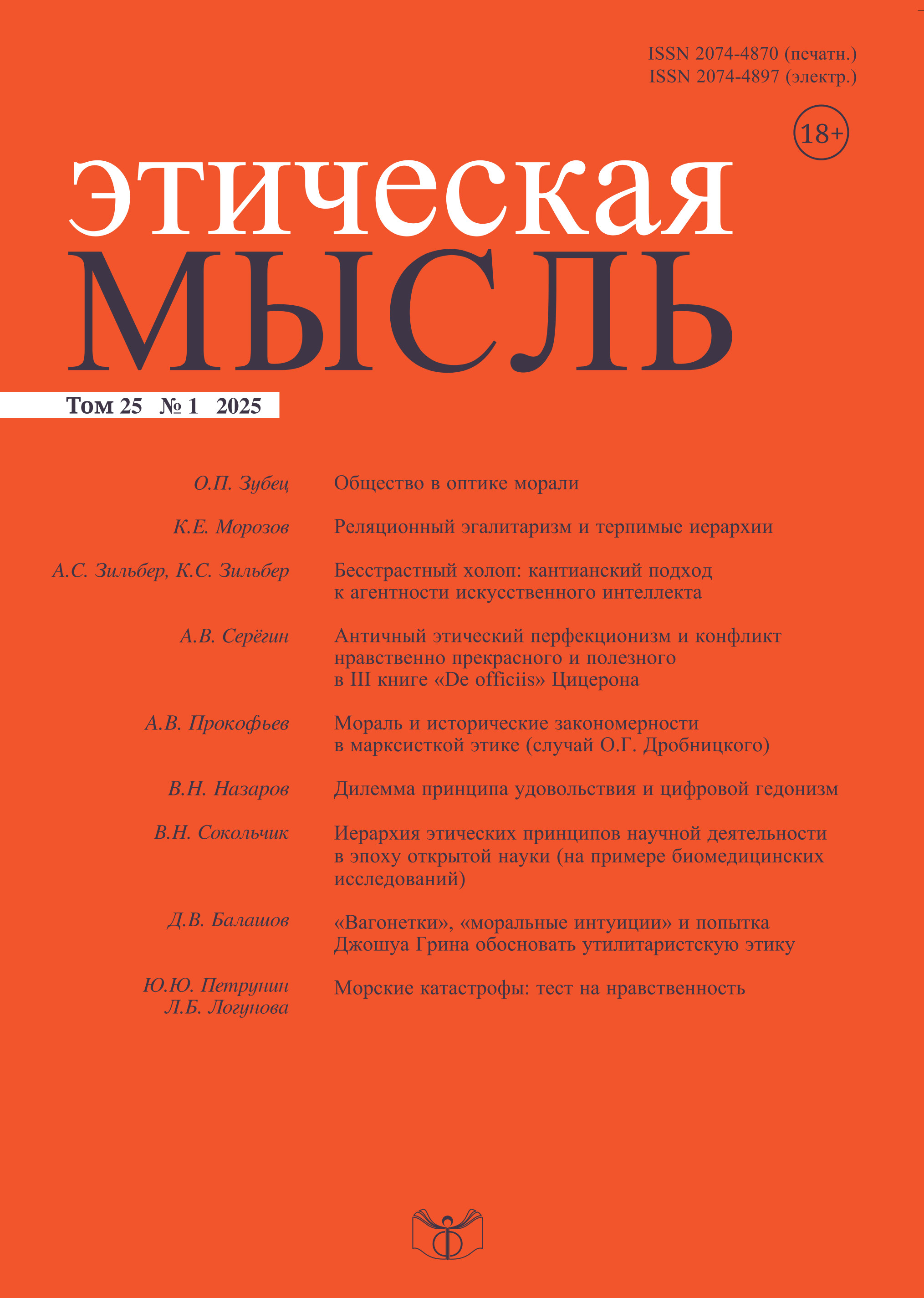M.M. Bakhtin’s Ethical Anti-normativism
DOI:
https://doi.org/10.21146/2074-4870-2025-25-1-64-80Keywords:
Bakhtin, moral norm, oughtness, imperativity, act, dialogue, ethicsAbstract
The article critically analyzes M.M. Bakhtin’s ethical anti-normativism. The denialof the role of norms in morality was due to the fact that they, in his opinion, contradicta specific once-occurrent and unique experience of an individual. This attitude to moralnorms reflected Bakhtin’s more general view of culture and life, according to whichlifeless culture is radically opposed to life, “live” practice. Bakhtin succeeded in justifying anti-normativism in ethics, which was paradoxical from a traditional point of view,through a legalistic, authoritarian and praxeological interpretation of norms in general,which as such are appropriate in law, religion, routine and expedient activities, but notin morality. In the philosophy of early Bakhtin, morality was represented in the category of act.Correlating an act with being and presenting it as a given “event of being”, Bakhtininterpreted an appropriate, non-normative way of ought: a person is imbued with it due to her “participation in being”. The article shows that although in early Bakhtin’s philosophy, at the phenomenological level, the moral agent appears in an ego-centered perspective,both anti-normativism, participation in being, and the inherent oughtness of the act canbe clarified in the light of Christian orientation of his philosophical worldview, which he did not consider possible to present in a theoretically explicated form. This worldview orientation apparently determined Bakhtin’s transition from the philosophy of action tothe philosophy of dialogue, which marked the end of the early period of hisphilosophical work.









